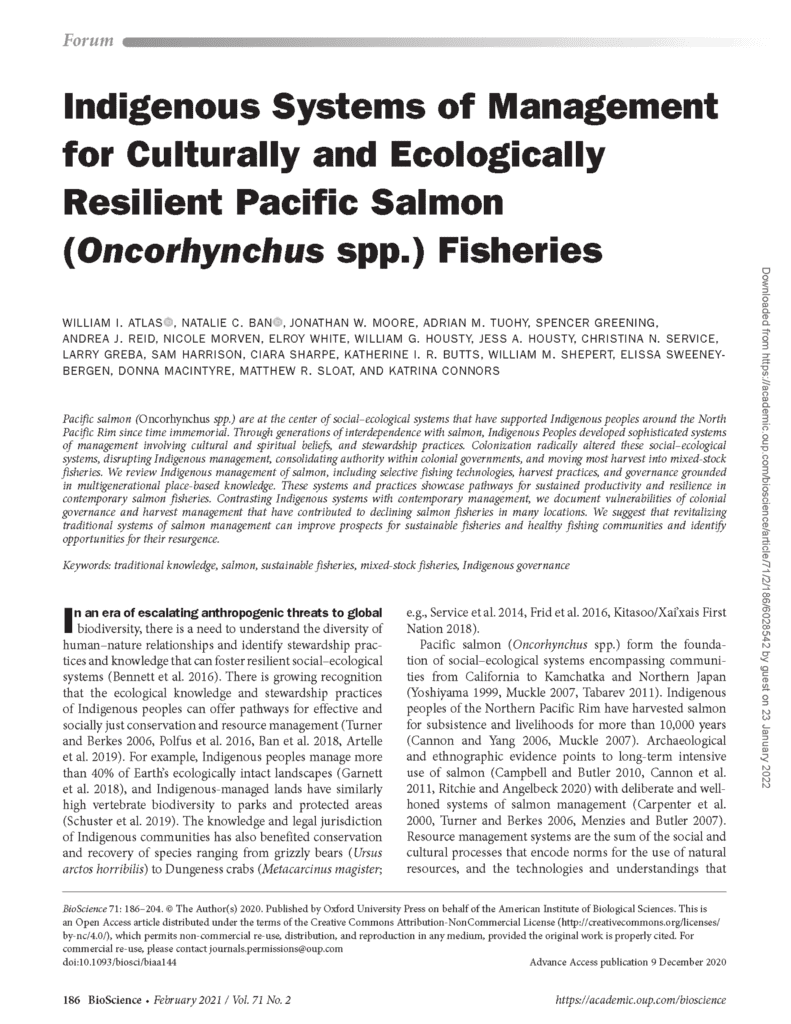
Description |
|---|
A way to insert a line break in the resources descriptions? Pacific salmon (Oncorhynchus spp.) are at the center of social–ecological systems that have supported Indigenous peoples around the North Pacific Rim since time immemorial. Through generations of interdependence with salmon, Indigenous Peoples developed sophisticated systems of management involving cultural and spiritual beliefs, and stewardship practices. Colonization radically altered these social–ecological systems, disrupting Indigenous management, consolidating authority within colonial governments, and moving most harvest into mixed-stock fisheries. The authors review Indigenous management of salmon, including selective fishing technologies, harvest practices, and governance grounded in multigenerational place-based knowledge. These systems and practices showcase pathways for sustained productivity and resilience in contemporary salmon fisheries. Contrasting Indigenous systems with contemporary management, the authors document vulnerabilities of colonial governance and harvest management that have contributed to declining salmon fisheries in many locations. The authors suggest that revitalizing traditional systems of salmon management can improve prospects for sustainable fisheries and healthy fishing communities and identify opportunities for their resurgence. Indigenous Systems of Management |
File Attachment |
|---|
Download |